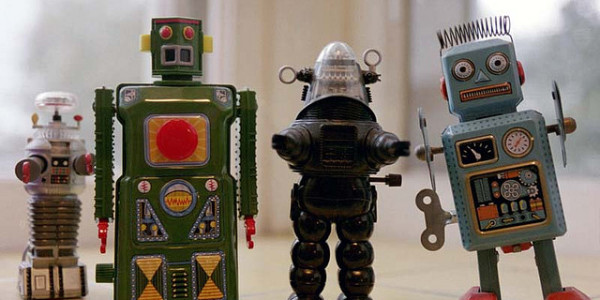Tomorrow is Thanksgiving, and friends and family will be gathering to give thanks for everything from turkey to football. There are so many things to be thankful for, and while plentiful food and the company of loved ones is sure to be on your list, you can’t forget about automation.
Granted, automation isn’t going to be the first thing that comes to mind when you rack your brain to think of things that you’re grateful for, but automation is indispensable in manufacturing. Here are 10 things about automation that we’re grateful for.
Automation makes work safer. Industrial machinery can be used in dangerous environments – like those with high temperatures, unsafe chemicals, poor air quality, etc. – where human workers can’t work safely.
It’s made work easier. Machinery is replacing human labor for repetitive tasks and back-breaking work. Industrial robots facilitate the jobs that people do.
Automation gets the job done faster. You might be able to make a case if your name is John Henry, but most people can’t work as fast as a machine.
Automated work is more efficient. Efficiency is about more than just speed. Whether it’s collaborative robots like Baxter that are helping people do their work, or it’s a fully automated factory machine, work is more efficient thanks to automation and motion control.
There’s less wasted raw materials with automation. Wasted materials have a negative affect both environmentally and economically.
Robots are more affordable than human laborers. Sure, there’s the initial cost of purchasing an industrial robot, but the long term savings on labor make it a cost-effective investment.
Less waste and cheaper production costs, or course, lead to cheaper products. This makes goods more affordable for consumers.
Automated machinery can be used in sensitive environments that demand sterile conditions. People just aren’t sterile.
Industrial robots are fast, but they’re also precise. This ensures high quality and consistency that can’t be replicated by human workers.
Automation promotes innovation and the advancement of technology. Because of machines, there are fewer factory positions. Factory work is being whittled down to engineering and supervisory jobs. This frees people from dull, repetitive jobs, and an increased need for roboticists, engineers, and the like spurs the advancement of technology while also providing more satisfying and better-paying work.
